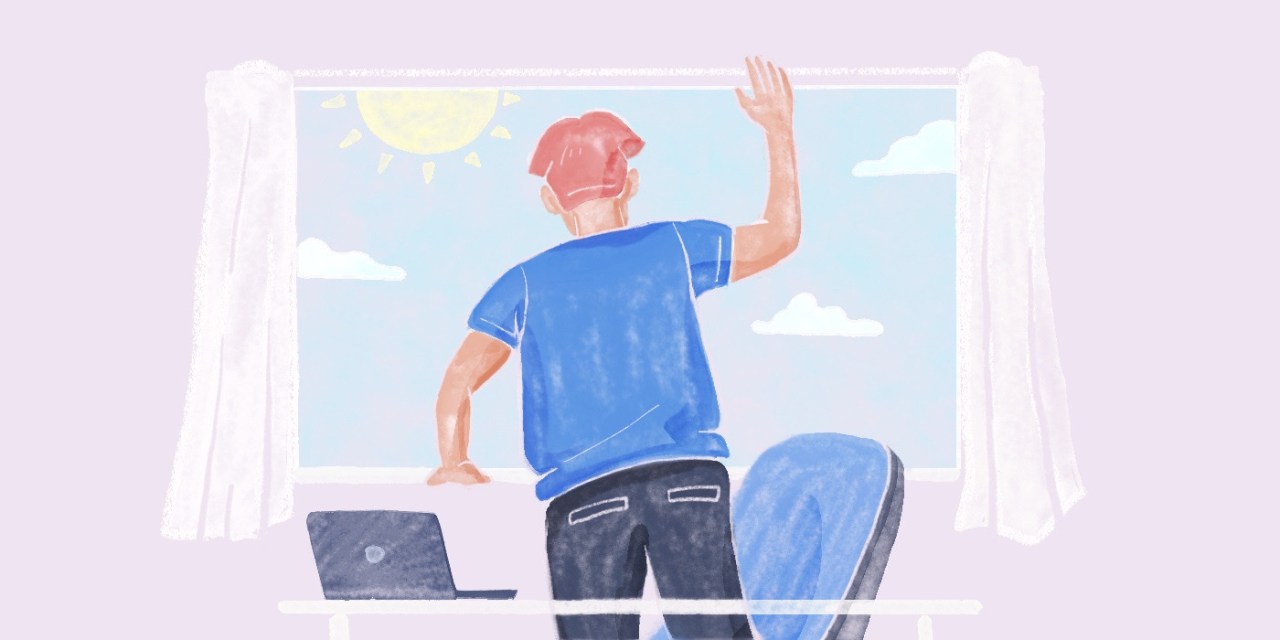Why Gen Z workers aren’t taking vacations

Gen Z workers have made headlines over the past year for being quiet quitters, partaking in Bare Minimum Mondays, and taking advantage of remote work. So it’s not a giant leap of the imagination to assume they’d also be the generation that takes the most PTO — apparently not.
In fact, only 58% of Gen Zers planned to take a vacation this summer, lower than the national U.S. average of 62%, according to the latest edition of LinkedIn’s Workforce Confidence Index.
Could it be then, that this generation’s tendency to quiet quit has led to a more manageable work-life balance? Have they mastered setting work-life boundaries to the extent that they simply don’t feel burnt out and in need of longer vacations?
The reality is that there are a myriad of contributing factors: for starters, guilt.
The report showed that this generation feels the most guilty for not working while on vacation, and the most likely to not take vacation due to the state of the economy. Meanwhile, many feel pressure to shake off the reputation that they are disengaged and feel they must prove otherwise.
Shayla Colon, a Gen Z reporter at asset management publication Fundfire, said that she’s only taken PTO once this year, for a trip she planned last year. “I often feel guilty about taking PTO,” said Colon. “My vacation this year ended up only being five days because I wanted to get back to work and I was anxious about leaving.”
But there’s more to it than guilt alone. Gen Z workers are capitalizing on remote and flexible work, which sometimes allows people to run more errands during the day or log off at 5 p.m. to get started on their post-workday plans early. They’re not doing too much at work which causes major fatigue or stress. That’s not to say they aren’t working, but they have a different approach to previous generations who are more likely to work overtime, take on too much, and are in dire need of a vacation.
The last time Samantha, an alias WorkLife agreed to, took PTO was in April. She’s an editor for a publication in upstate New York, and requested anonymity so that her company can’t identify her.
“I feel like there’s this laissez-faire way of working in the summer, where as long as you get your work done, you can go enjoy some Vitamin D,” said Samantha. “I don’t like taking PTO in the summer because I know that I am enjoying my work-life balance. I’d rather do it when it’s colder or when things are busier.”
She’s a Gen Zer who saves her PTO for international vacations to learn more about different cultures, not so much to unplug and relax.
“You almost feel like you have PTO during the week,” said Samantha. “If you’ve mastered how to give yourself a break, or wake up earlier and end by 3 p.m. or 4 p.m., or do work at night if you’re not feeling productive during the day, you are able to create your own schedule, especially being remote. I’ve found that giving myself time to read, or catch up on a show, is a part of my day to relax while I’m still working. I don’t need random PTO days because I’m taking care of myself during the week.”
Summer Fridays, which her company offers, have also helped achieve this balance. She says when she hits a wall of no longer being productive, she’d rather spend time for herself and recharge to then show back up at work as the best version of herself. It adds up to a couple of hours a day that she uses to focus on herself, leaving six hours for work – which is still more than the four hours a day others have reported as working hours.
She’s not alone in not needing to take PTO all the time. Cassidy Speller, a curriculum designer for an education company, works a hybrid job where she is in the office Tuesday through Thursday.
“If you are going on a trip for a long weekend, you can plan ahead and leave Thursday night and you don’t need to take off on Friday because you’re working from your laptop,” said Speller. “Taking PTO is more of a choice on how you want to spend your time. If I’m going somewhere with my friends, and all of us plan to work remotely on Friday, why would I ‘waste’ my PTO hours then when I’m still able to work?”
She said that most of her colleagues have the same approach, showing up with different Zoom backgrounds often on Mondays and Fridays. It also helps that her company doesn’t hold important meetings on these days either. She said as long as she completes her eight hours of work, she feels good, and she doesn’t stress if it isn’t during the typical 9 to 5 either.
“There’s more flexibility in choosing when to work around when your mental state is present,” said Speller.
There is still pushback on that Gen Z mentality in her workplace, although she doesn’t let it impact her. “Older generations are more inclined to follow the hours more clearly,” said Speller. “Younger generations say ‘yes I know this is a 9 to 5 job, but if I can do my job from 10 to 6, or 7 to 3, and get out early and drive to the beach, then I’m going to do that.’ It’s getting done, but not in the exact way they want.”


